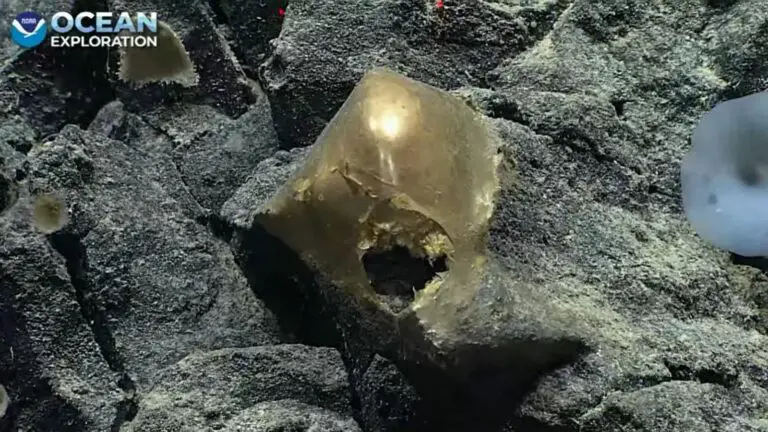Mysterious Golden Orb Puzzles Scientists
A captivating discovery on the ocean floor has left scientists scratching their heads. On August 30th, marine biologists aboard a National Oceanic and Atmospheric Administration (NOAA) vessel off the coast of Alaska stumbled upon an enigmatic golden orb. Despite ongoing tests, the object’s origin remains a mystery.

The NOAA shared an image of this intriguing find on social media, sparking curiosity among viewers. While some have suggested it might be an egg, the exact nature of the object remains unidentified.
A Puzzling Discovery
The image reveals a spherical, sponge-like structure with a peculiar hole. During the live stream, one researcher aboard the vessel noted that “something tried to get in… or get out,” adding to the intrigue.
Social Media Buzz
The “glittering gold blob,” as described by the NOAA, has ignited a flurry of reactions on social media. Amidst the speculation and fascination, one person humorously quipped, “Not now, golden orb found on ocean floor.”
Exploring the Depths
The NOAA is currently engaged in a five-month mission to explore the depths of the sea near Alaska. Equipped with advanced tools, the 48-strong crew collects real-time data that aids researchers on land.
Expedition coordinator Shannon Hoy expressed her excitement about exploring this hidden world teeming with life. Little did she know that weeks later, the golden orb would capture the world’s attention.
Unveiling the Ocean’s Secrets
Onboard the Okeanos Explorer, researchers diligently map and collect samples along the Aleutian Trench and Gulf of Alaska. Specialized cameras operate at depths of up to 6,000 meters, providing a window into the underwater world.
“We’re also going to be looking through the water column to see what interesting animals and fauna that we can see there,” mentioned Ms. Hoy before the mission began.
As the mission’s conclusion draws near, it seems Shannon Hoy and her team may have uncovered more than they ever anticipated.

